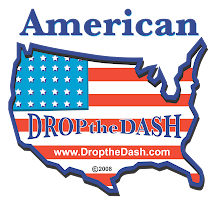America is a country of immigrants. America is a country of nothing but immigrants.
One side of the American street prides itself on not seeing the person as a combination of ancestral ethnicities but, instead, each individual becomes a culmination of their life experiences.
The other side of the American street takes pride in the achievements of their ancestors and believe their ancestor’s struggles, sacrifices and oppressions are intrinsic to who they are and how America treats/sees them.
This boulevard of contrasting views pervades most aspects of American social laws and policies. Almost every social issue faced by our judicial and/or legislative bodies, on national, state and local levels, have an ethnic/racial purpose or impact and we spend inordinate amounts of time debating, protesting, defending, and balancing these facets.
There is the beginnings of a new movement within our country to re-think the use of ethnic qualifiers to the American nationality. African-American, Hispanic-American, or your-ethnicity-goes-here-DASH-American is of questionable benefit to the nation’s social fabric and, debatably of course, does more harm to national unity than good. This same debate was part of the nation’s conversation at the turn of the 20th century when it was the German-Americans, Irish-Americans, and Polish-Americans that qualified their nationality.
In many aspects, where America goes, so goes the world. Before any other country steps into this pit of social identities, there are some questions the people of that country should ponder:
1. Are institutionalized hyphenated-nationalities good for a country’s unity and socio-mentality or is it an institutionalized contradiction to the term “nationality”?
2. Can you belong to more than one country and, if so, what happens when the two countries have conflicting policies?
3. Can you maintain the cultures and customs of your ancestral homelands while still assimilating fully into your birth country?
4. Does the use of hyphenated-nationalities proclaim an aversion to the idea of assimilation?
5. Is the use of the hyphenated qualification a two edged sword that cuts both ways? In other words, can you expect your country to treat you different because of your hyphenation but treat you the same despite your hyphenation?
Videos on the Web related to "I am an American"
Comments from our Amazon.com Non-Fiction forum
Sunday, August 3, 2008
Subscribe to:
Post Comments (Atom)
Is it time to Drop the Dash and be "American"?

About me...

- dolarbil
- Atlanta, Georgia, United States
- Just someone who doesn't want his children to have to fight the same race and ethnic battles that his parents did. It's the 21st century, isn't it time we all got along?



2 comments:
Yes, it is time for people that have American citizenship to check American on their paperwork because to check another nationality indicates that one has citizenship in that country. Many African Americans are Americans with African heritage just like Americans with Irish heritage. It does not mean that they can't be proud of their heritage but why classify people based on ancestry.
Also, since the world is more global, there are people who do have dual nationality. For example, one can be American-Australian if one has citizenship from both countries. Of of course, I have Danish heritage so I could say that I was Danish-American under the current rules but that would be incorrect because it was only my great grandmother who came from Denmark and I don't have Danish citizenship. One has to be eligible for citizenship and meet the requirements of that country.
We are Americans if that is the only country that you can obtain a passport from and it is time to join together or we will always be divided.
yes, we are Americans.
I believe many people feel they are not embraced by American society so the dash/hyphen is a pseudo-protest as well as a tribute to heritage.
We want to push the pride in nationality to the forefront.
Drop the Dash is a start.
Post a Comment